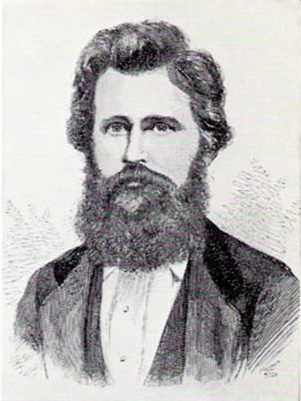William Paterson (trade Unionist) on:
[Wikipedia]
[Google]
[Amazon]
 William Paterson (3 January 1843''Scotland, Select Births and Baptisms, 1564-1950
'' – 17 December 1906) was a
William Paterson (3 January 1843''Scotland, Select Births and Baptisms, 1564-1950
'' – 17 December 1906) was a
 William Paterson (3 January 1843''Scotland, Select Births and Baptisms, 1564-1950
'' – 17 December 1906) was a
William Paterson (3 January 1843''Scotland, Select Births and Baptisms, 1564-1950
'' – 17 December 1906) was a Scottish
Scottish usually refers to something of, from, or related to Scotland, including:
*Scottish Gaelic, a Celtic Goidelic language of the Indo-European language family native to Scotland
*Scottish English
*Scottish national identity, the Scottish ide ...
trade unionist
A trade union (labor union in American English), often simply referred to as a union, is an organization of workers intent on "maintaining or improving the conditions of their employment", ch. I such as attaining better wages and Employee ben ...
and fire officer.
Born in Elgin, Paterson followed his father in becoming a joiner
A joiner is an artisan and tradesperson who builds things by joining pieces of wood, particularly lighter and more ornamental work than that done by a carpenter, including furniture and the "fittings" of a house, ship, etc. Joiners may work in ...
. He completed an apprenticeship, and then moved to Edinburgh to find work. He joined the Associated Carpenters and Joiners of Scotland union, and was soon elected as branch secretary.
In 1867, Paterson was elected as general secretary of the union. He adopted a militant approach, and this led to increased wages and reduced hours for members of the union. As a result, the union's membership increased, and it survived a recession in the late 1870s.
Paterson was active in the campaign for universal male enfranchisement; he was the main organiser of a demonstration in Edinburgh in 1866, and was secretary of the city's branch of the Reform League
The Reform League was established in 1865 to press for manhood suffrage and the ballot in Great Britain. It collaborated with the more moderate and middle class Reform Union and gave strong support to the abortive Reform Bill 1866 and the success ...
for the following year. He stood for Edinburgh Town Council
The politics of Edinburgh are expressed in the deliberations and decisions of the City of Edinburgh Council, in elections to the council, the Scottish Parliament and the UK Parliament.
Also, as Scotland's capital city, Edinburgh is host to th ...
's Canongate
The Canongate is a street and associated district in central Edinburgh, the capital city of Scotland. The street forms the main eastern length of the Royal Mile while the district is the main eastern section of Edinburgh's Old Town. It began ...
ward in 1870, as a Liberal-Labour candidate, coming only fifty votes behind his opponent. He moved to Glasgow in 1875, when the headquarters of the union were transferred there. From 1881 to 1883, he also served on the Parliamentary Committee of the Trades Union Congress.
In 1883, Paterson stood down as leader of the union to become the first working-class factory inspector in Scotland. However, he had long held an interest in fire safety
Fire safety is the set of practices intended to reduce the destruction caused by fire. Fire safety measures include those that are intended to prevent the ignition of an uncontrolled fire and those that are used to limit the development and eff ...
and, at the end of 1884, he instead became superintendent of the Glasgow Fire Brigade. The brigade expanded significantly under his leadership, with six new fire stations, about ninety additional staff, and much new equipment. The ''Glasgow Herald
''The Herald'' is a Scottish broadsheet newspaper founded in 1783. ''The Herald'' is the longest running national newspaper in the world and is the eighth oldest daily paper in the world. The title was simplified from ''The Glasgow Herald'' in ...
'' state that: "Among the men under his charge he was very popular. He was a strict disciplinarian, insisted on sedulous attention to duty, but he did everything in his power to provide for the comfort of the staff, nor did he neglect to consider the necessity for facilities for healthful exercise, relaxation and amusement in the laying out of the stations which he had erected". In 1903, he was a founder of the Association of Professional Fire Brigade Officers of the British Empire, and he served as its president for the first two years.
Paterson's health declined during 1906, but he appeared to recover following an operation in July. In December, he attended a fire in person, but he caught a cold and died less than two weeks later.
References